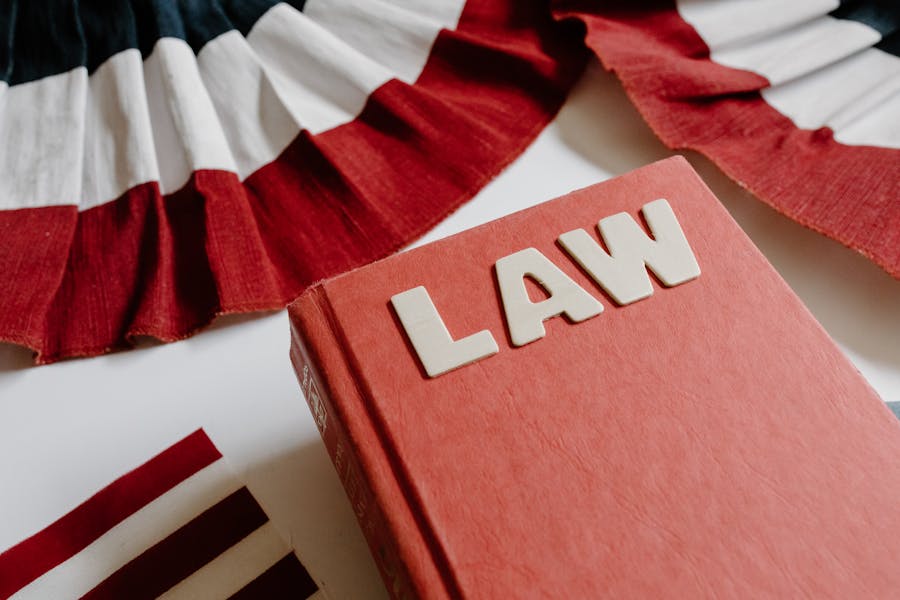DUI checkpoints, also known as sobriety checkpoints, are commonly used by law enforcement to identify and deter impaired drivers. However, the question often arises: Are DUI checkpoints legal? The answer depends on the laws of each state, constitutional protections, and the way these checkpoints are conducted.
In some states, DUI checkpoints are considered a vital tool for improving road safety and reducing alcohol-related accidents. In others, their legality is challenged due to concerns over constitutional rights, such as protection against unreasonable searches and seizures under the Fourth Amendment. Understanding these legal nuances is essential for drivers who may encounter such checkpoints.
This article explores the legality of DUI checkpoints, the rules governing their operation, and what drivers should know about their rights. By providing a comprehensive guide, we aim to clarify this often-debated issue and equip you with the knowledge to handle a checkpoint encounter confidently.
Are DUI checkpoints legal?
Yes, DUI checkpoints are legal in many states but must comply with specific constitutional standards. The U.S. Supreme Court has ruled that checkpoints are permissible if they serve public safety and follow guidelines to minimize intrusiveness. However, some states prohibit their use entirely, making it important to understand local laws.
What Are DUI Checkpoints?
DUI checkpoints are temporary stops set up by law enforcement to identify and deter impaired drivers. Officers at these checkpoints stop vehicles in a systematic manner, such as every third car, to assess drivers for signs of intoxication. While their primary purpose is public safety, these checkpoints often raise questions about their legality and how they align with constitutional protections.
The U.S. Supreme Court has upheld the use of DUI checkpoints, ruling that the public safety benefits outweigh minor intrusions on drivers. However, states have the authority to regulate their implementation or ban them entirely. This section explains the purpose, process, and legal framework of DUI checkpoints to provide a foundational understanding.
What Makes DUI Checkpoints Legal?
The Role of the Fourth Amendment
The Fourth Amendment of the United States Constitution protects individuals from unreasonable searches and seizures, making it a cornerstone in the debate over the legality of DUI checkpoints. For these checkpoints to be considered lawful, they must adhere to constitutional standards that balance public safety with individual rights. This includes ensuring that stops are conducted systematically and neutrally, with no arbitrary or discriminatory practices. The legality of DUI checkpoints hinges on their ability to minimize intrusion while effectively addressing public safety concerns.
Supreme Court Rulings
The legality of DUI checkpoints has been upheld in landmark Supreme Court cases, most notably Michigan Department of State Police v. Sitz (1990). In this case, the Court ruled that the public safety benefits of DUI checkpoints outweigh the minimal intrusion on individual drivers. However, the decision emphasized that checkpoints must operate under specific guidelines to ensure fairness and compliance with constitutional principles. These rulings have provided a legal framework for states to implement and regulate DUI checkpoints, though the interpretation and application of these guidelines vary.
State-Specific Laws
The implementation of DUI checkpoints is heavily influenced by state-specific laws. While many states allow these checkpoints under strict regulations, others, such as Texas and Oregon, have banned them entirely due to concerns over their constitutionality and effectiveness. States that permit DUI checkpoints often require law enforcement to follow precise operational procedures to ensure legality and public trust. These variations highlight the diverse legal landscape surrounding DUI checkpoints across the United States.
Operational Guidelines
To ensure DUI checkpoints comply with constitutional standards, law enforcement must follow established operational guidelines. These include using clear and visible signage to notify drivers of the checkpoint, conducting stops neutrally and systematically, and minimizing the inconvenience to drivers. Supervising officers must oversee operations to ensure adherence to protocol and address any issues that arise. By following these guidelines, law enforcement can effectively balance public safety objectives with the need to protect individual rights.
How Do DUI Checkpoints Operate?
The operation of DUI checkpoints is carefully governed by established rules designed to balance public safety with constitutional protections. These guidelines aim to ensure that the checkpoints are conducted fairly, minimize inconvenience to drivers, and respect individual rights while serving the broader goal of deterring impaired driving. Below are the key aspects of how DUI checkpoints are operated:
- Random Vehicle Stops Based on a Neutral Formula: Law enforcement must use a neutral and predetermined formula for stopping vehicles, such as every third car or every other vehicle. This ensures that the selection process is unbiased and not influenced by personal judgment or profiling.
- Use of Clear and Visible Signage: DUI checkpoints must be marked with visible signage to notify drivers of their presence. Warning through signs, lights, and uniformed officers ensures that drivers are aware of the checkpoint and can approach it with caution. This transparency helps maintain public trust and compliance.
- Brief Interaction with Drivers: Officers at checkpoints are trained to conduct brief interactions with drivers, asking standard questions and observing for signs of impairment, such as the smell of alcohol, slurred speech, or erratic behavior. Unless these signs are detected, drivers are allowed to proceed quickly, minimizing the intrusion.
- Presence of Supervising Officers: Supervising officers are required to oversee the operation of DUI checkpoints to ensure adherence to legal guidelines and proper protocol. Their presence provides accountability and helps address any disputes or challenges that may arise during the operation.
These operational guidelines are critical to the legality and effectiveness of DUI checkpoints. They help strike a balance between preventing impaired driving and upholding constitutional rights, such as protection against unreasonable searches and seizures. By adhering to these rules, law enforcement can maintain public trust while achieving the goal of improving road safety. Understanding these aspects ensures that both drivers and officers are aware of their rights and responsibilities during a checkpoint encounter.
Challenges to DUI Checkpoint Legality
DUI checkpoints, though widely used as a tool to deter impaired driving, have long faced challenges regarding their legality and constitutionality. The primary criticism stems from concerns that these checkpoints may infringe upon Fourth Amendment rights, which protect against unreasonable searches and seizures. Unlike routine traffic stops that require reasonable suspicion of a violation, DUI checkpoints involve stopping drivers systematically, often without any individualized suspicion. This lack of probable cause has led to debates about whether such practices violate fundamental constitutional protections.
Constitutional challenges to DUI checkpoints have been a significant aspect of legal discourse. The U.S. Supreme Court addressed these concerns in Michigan Department of State Police v. Sitz (1990), ruling that the public safety benefits of DUI checkpoints outweigh the minimal intrusion on individual rights. However, this decision emphasized that checkpoints must adhere to specific operational guidelines, such as using neutral criteria for stopping vehicles and minimizing inconvenience to drivers. Despite this ruling, states retain the authority to regulate or prohibit checkpoints, resulting in a varied legal landscape across the country.
Public opinion on DUI checkpoints is similarly divided. Supporters argue that they are a necessary measure to reduce alcohol-related accidents and fatalities, citing their effectiveness in deterring impaired driving. Opponents, however, view them as invasive and inefficient, raising concerns about potential abuse of power and the disproportionate targeting of specific communities. These differing perspectives highlight the complexity of balancing public safety with individual freedoms.
Several states, including Texas and Oregon, have chosen to ban DUI checkpoints altogether, citing constitutional concerns and questioning their effectiveness. Others, like California and Florida, permit checkpoints but enforce strict regulations to ensure compliance with legal standards. These state-specific approaches reflect the ongoing tension between safeguarding public safety and upholding constitutional rights.
As legal challenges and public opinion continue to shape the conversation, DUI checkpoints remain a controversial but pivotal tool in law enforcement’s efforts to combat impaired driving. Understanding their legal framework and operational guidelines is essential for addressing these debates and ensuring that checkpoints are conducted fairly and effectively.
What Should You Do at a DUI Checkpoint?
Know Your Rights
Understanding your rights at a DUI checkpoint is essential to navigating the situation confidently. Drivers are generally not obligated to answer questions about their destination, drinking habits, or other potentially incriminating topics. The right to remain silent is protected under the Constitution, although it is important to exercise this right politely and respectfully. Depending on state laws, drivers may also have the right to refuse certain tests, such as a preliminary breath test, without immediate legal consequences. However, implied consent states, that refusing a breathalyzer after an arrest may result in penalties like license suspension.
Be Prepared to Show Documents
When stopped at a DUI checkpoint, drivers are required to provide specific documentation, including their driver’s license, vehicle registration, and proof of insurance. These documents should be readily accessible to avoid unnecessary delays or suspicion. Presenting these items promptly and without hesitation demonstrates cooperation and can help expedite the process. It is important to note that while providing documents is mandatory, engaging in conversations or answering unrelated questions is not.
Follow Law Enforcement Instructions
Compliance with law enforcement instructions is crucial at a DUI checkpoint. Officers are trained to observe driver behavior for signs of impairment or noncompliance, and cooperating respectfully can prevent unnecessary complications. Drivers should follow directions for stopping their vehicles, rolling down their windows, and providing requested documentation. At the same time, understanding the limits of law enforcement authority can help drivers protect their rights without escalating the situation.
Avoid Making Illegal U-Turns
Many drivers may consider avoiding a DUI checkpoint altogether by turning around or taking an alternate route. While avoiding a checkpoint is not inherently illegal, making an illegal U-turn or violating traffic laws in the process can draw attention from law enforcement and lead to further scrutiny. If you choose to bypass a checkpoint, ensure that you do so legally to avoid additional penalties or suspicion. Understanding these nuances can help you handle checkpoint encounters safely and lawfully.
Conclusion
The legality of DUI checkpoints depends on a balance between public safety and constitutional rights. While they are legal in many states, their operation must adhere to strict guidelines to ensure fairness and minimal intrusion. Drivers should educate themselves on their rights and state-specific laws to navigate these checkpoints confidently. Whether you’re asking, Are DUI checkpoints legal? or seeking to understand your obligations, staying informed is the best way to protect your rights and safety.
FAQ’s
Q. Are DUI checkpoints legal in every state?
A. No, DUI checkpoints are not legal in all states. Some states prohibit them entirely due to constitutional concerns.
Q. Can I refuse a breathalyzer at a DUI checkpoint?
A. It depends on your state. In implied consent states, refusing a breathalyzer can result in penalties like license suspension.
Q. Do I have to answer questions at a DUI checkpoint?
A. No, you have the right to remain silent, but you must provide necessary documentation like your license and registration.
Q. What happens if I try to avoid a DUI checkpoint?
A. Attempting to avoid a checkpoint is not illegal, but it may attract the attention of law enforcement and result in further investigation.
Q. How do I know if a checkpoint is legal?
A. Legal checkpoints typically have clear signage, operate with a predetermined plan, and follow constitutional guidelines for minimal intrusion.








